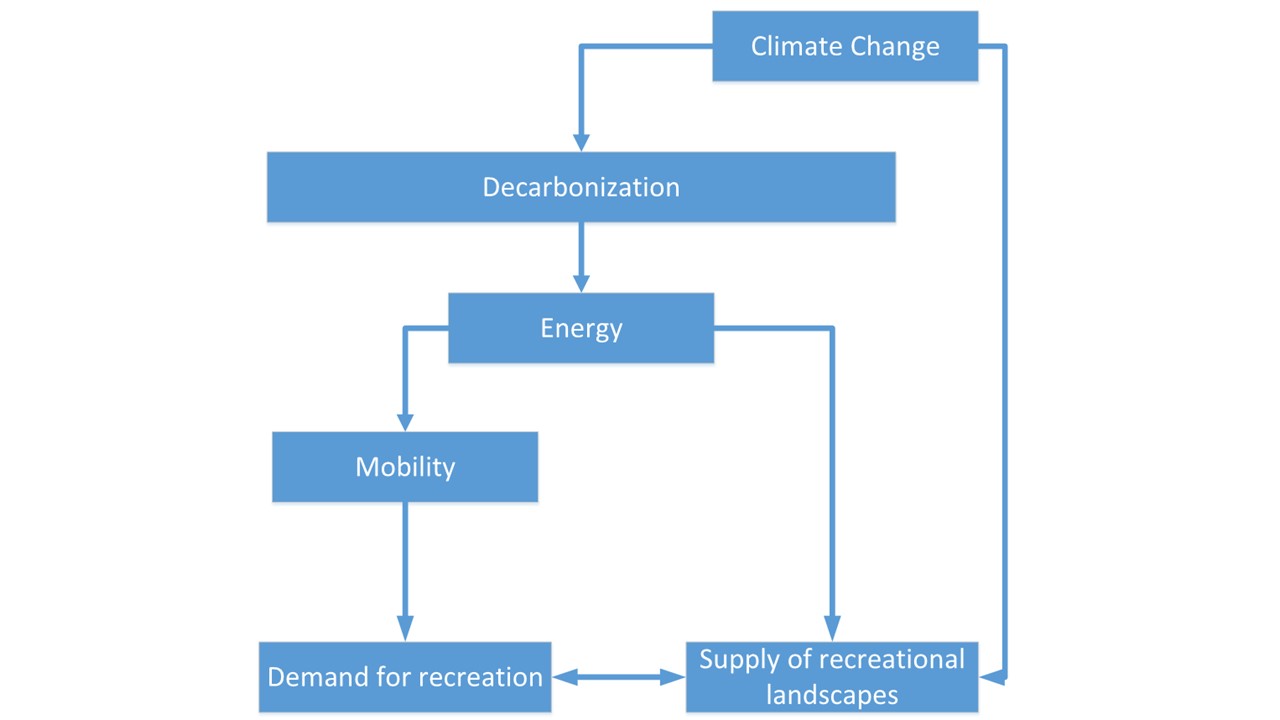Decarbonisation & Landscape
Research Questions
- How will future mobility- (mode/costs) impact outdoor recreation demand in Switzerland?
- How does natural variability under climate change conditions impact the supply of recreational landscapes in Switzerland?
- How do the Swiss energy transition and expansion of renewables impact the supply of recreational landscapes in Switzerland?

Decarbonization of our societies is one of the biggest challenges of our time. Also Switzerland has committed itself to reducing its greenhouse gas emissions by 80% until 2050. As transportation is the sector with the largest carbon emissions in Switzerland, the electrification of transportation is one important lever to fulfill this ambitious goal (despite the fact that mobility will increase due to demographic changes). Simultaneously to decarbonizing its transportation system, Switzerland has decided to substitute nuclear power by renewable energy sources. All those developments will have effects on the landscape and the services it provides, from supply to the demand particularly also of cultural ecosystem services, including recreation.
Primarily, the transition to electric mobility, will change the accessibility of landscapes and ultimately the demand for recreation. Secondly, new renewable energy infrastructures coming along with the energy transition will directly impact landscapes. Finally, despite mitigation efforts, climate change is already today affecting alpine regions and belongs to the main drivers for the change in supply of recreational landscapes. The goal of this project is thus to understand the influence of decarbonization and climate change on recreational landscapes in Switzerland.

On the one hand, I will evaluate the impacts of decarbonization on the demand for recreation. To do so I will develop a model that simulates how future mobility modes and policies affect accessibility and the allocation and demand for recreation. On the other hand, I will investigate how decarbonization and climate change impact the supply of recreational landscapes. To reach this goal, I will use climate model data to simulate how anthropogenic climate change and changes in natural climatic variability and extreme events impact the supply of recreational landscapes. Further, I will analyze how the Swiss energy transition and development of renewable energy infrastructures in the landscape will influence the supply of recreational landscapes. The project will provide stakeholders and policy-makers with new knowledge on how to operationalize sustainability, while maintaining our high qualities of life.
The project is lead by Fabian Willibald

You can read more about the Methods used to address our research questions.